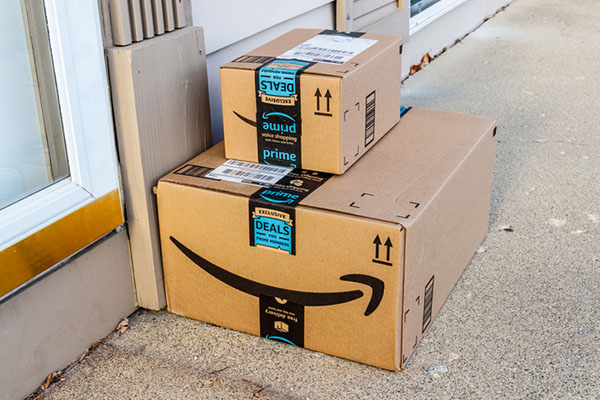Analyst weighs in on Amazon’s move to end its third-party delivery service
A report issued in The Wall Street Journal last week explained that global e-commerce bellwether Amazon is preparing to shutter a delivery service geared towards “non-Amazon packages in June.
The report said that this program, entitled Amazon Shipping, which is only currently available in only a few United States markets, is being suspended, due to Amazon needing “people and capacity to handle a surge in its own customers’ orders,” adding that Amazon plans to bring on 100,000 warehouse workers and is intent on “shipping essential items during the coronavirus outbreak.”
Trevor Outman, Founder and CEO of San Diego-based parcel consultancy Shipware LLC, told LM that as Amazon continues to invest in their own delivery network, they found a way to develop and monetize pockets of excess capacity, adding that Amazon Shipping was designed to capitalize on these pockets of excess capacity and deliver non-amazon platform orders.
“The logic behind this move was that Amazon as a self-serving carrier was already at an Amazon account, picking up Amazon orders and they could just as easily pick up non-amazon orders, inducting them into the Amazon delivery network,” he said. “This falls in line with Amazon modus operandi; reflect upon AWS (Amazon Web Services), which was originally designed to serve the internal needs of Amazon but is now a market leader in cloud infrastructure. Amazon Shipping had a head start in the UK and was proving to have early success and will likely continue operations through the pandemic.”
What’s more, Outman added that Amazon Shipping in the U.S. was still in its fledgling state as the company worked on building out sort centers in major metropolitan locations, the original point of induction. While Amazon would only pick up in the [U.S. markets this offering was available], they would deliver nationwide, and he added that this was an invite-only program and was initially only extended to Amazon sellers that had online orders and shipping volume outside the Amazon platform/network.
Addressing the impact coronavirus, of COVID-19, has had on e-commerce retailers, he called it “boom or bust” while having a polarizing effect. As an example, he noted that some of Shipware’s accounts that sell essential or consumable items are experiencing a surge in shipping volume, up by as much as 500% while other accounts that ship non-essential items are down by 50%.
“The same demand whether up or down applies across all of Amazon orders,” he said. “Naturally, this off-kilter consumer spending justified Amazon to reallocate personnel to support the surging demand of essential and consumable items. The real news is the underlying message which now publicly confirms Amazon was developing ‘Amazon Shipping’ to eventually compete with FedEx and UPS. This represents a long-term threat to both FedEx and UPS.”
But, with that as a backdrop, he said the short-term outlook bodes favorably for both FedEx and UPS, as both stock prices ticked upward in response to this news.
“The longer-term threat rests more on UPS than FedEx since FedEx did not renew their contract with Amazon last year,” said Outman. “UPS continues to take advantage of Amazon’s growth despite the foreshadowing of an eventual competitor. Last year Amazon represented 17% of UPS’s total accounts receivable, which would put UPS in a precarious financial position once Amazon turns the corner and competes. Although the Amazon Shipping service is temporarily suspended, I am sure this will come roaring back to life with no headlines or fanfare once Covid-19 has passed.”
Feedback to this move by Amazon, from Morgan Stanley transportation analyst Ravi Shanker, noted that this was a limited pilot program that had not been broadly rolled out as a full third-party service, with volumes relatively limited within Amazon.
“As part of the Amazon Shipping service, Amazon had the choice of using its own Amazon Logistics operation or external vendors like the USPS/UPS/FDX to deliver the packages,” he wrote. “If these customers were to switch delivery providers, it is hard to tell how much of this is incremental to USPS/UPS/FDX since Amazon could have already used them for last mile deliveries. However, this could transition the impacted customers to be direct customers of USPS/UPS/FDX rather than going through Amazon’s contract which could have an impact on pricing for those customers.”
Robert W. Baird & Co. analyst Ben Hartford observed in a research note that as service delays and congestion have become well-known in recent weeks, this announcement by Amazon underscores the need for adaptability among global logistics networks to meet rapidly changing demand patterns related to challenges due to coronavirus.
As for what this development means for UPS and FedEx, Hartford explained it brings what he called unprecedented service challenges at Amazon—and the entire transportation network, due to coronavirus—to light, and it also highlights the essential nature of both UPS’ and FedEx’s parcel networks, especially during periods of elevated demand and service imbalances.”













